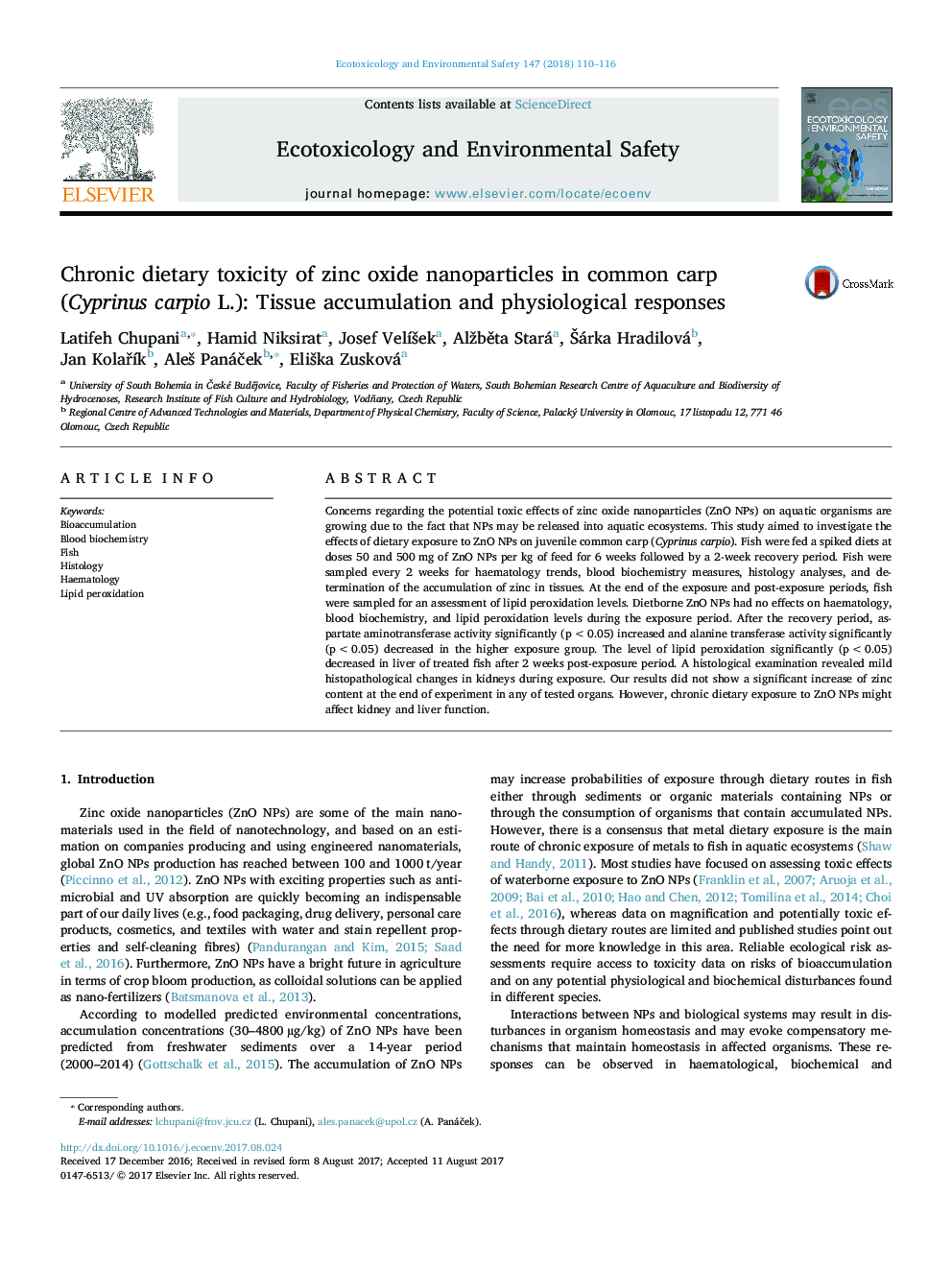| Article ID | Journal | Published Year | Pages | File Type |
|---|---|---|---|---|
| 5747796 | Ecotoxicology and Environmental Safety | 2018 | 7 Pages |
Abstract
Concerns regarding the potential toxic effects of zinc oxide nanoparticles (ZnO NPs) on aquatic organisms are growing due to the fact that NPs may be released into aquatic ecosystems. This study aimed to investigate the effects of dietary exposure to ZnO NPs on juvenile common carp (Cyprinus carpio). Fish were fed a spiked diets at doses 50 and 500Â mg of ZnO NPs per kg of feed for 6 weeks followed by a 2-week recovery period. Fish were sampled every 2 weeks for haematology trends, blood biochemistry measures, histology analyses, and determination of the accumulation of zinc in tissues. At the end of the exposure and post-exposure periods, fish were sampled for an assessment of lipid peroxidation levels. Dietborne ZnO NPs had no effects on haematology, blood biochemistry, and lipid peroxidation levels during the exposure period. After the recovery period, aspartate aminotransferase activity significantly (p < 0.05) increased and alanine transferase activity significantly (p < 0.05) decreased in the higher exposure group. The level of lipid peroxidation significantly (p < 0.05) decreased in liver of treated fish after 2 weeks post-exposure period. A histological examination revealed mild histopathological changes in kidneys during exposure. Our results did not show a significant increase of zinc content at the end of experiment in any of tested organs. However, chronic dietary exposure to ZnO NPs might affect kidney and liver function.
Related Topics
Life Sciences
Environmental Science
Environmental Chemistry
Authors
Latifeh Chupani, Hamid Niksirat, Josef VelÃÅ¡ek, AlžbÄta Stará, Å árka Hradilová, Jan KolaÅÃk, AleÅ¡ PanáÄek, EliÅ¡ka Zusková,
